By CGTN's John Goodrich, Lester Xu
Early morning heat restrained by subway air conditioning; spluttering rain dodged in a noodle shop; relief from sweat-inducing sun in a temple; salvation from a torrential downpour in a pub.
So goes a day wandering the streets of Hong Kong island, drinking in the contrasts which make the city such a mesmerizing home for the seven million residents crowded within.
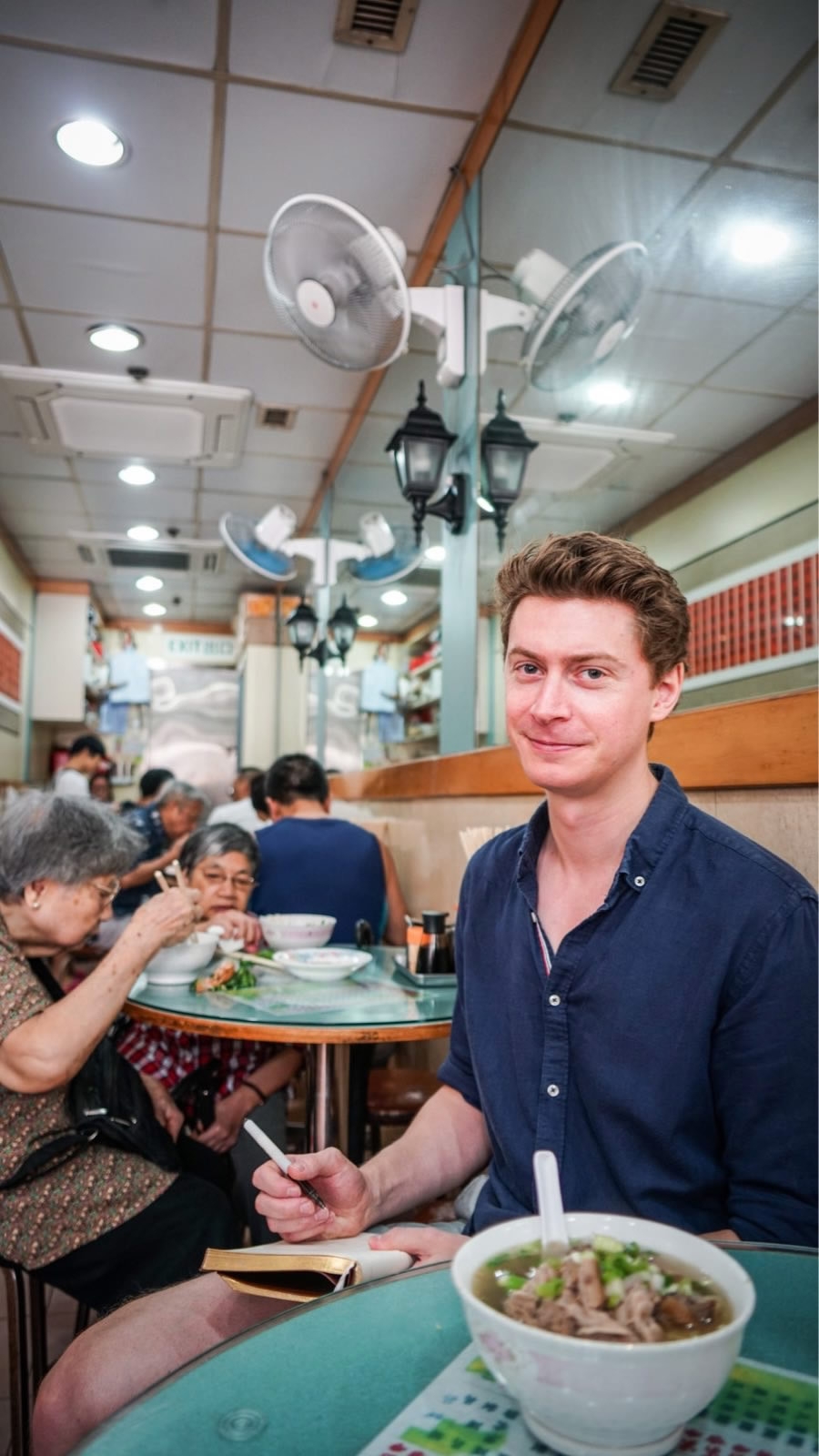
CGTN Photo
Weaving from the northwestern suburb of Sai Ying Pun through the warren of streets that climb and fall, snapshots of what makes Hong Kong special are left and right. The cliché of the city as a place where East meets West remains apt.
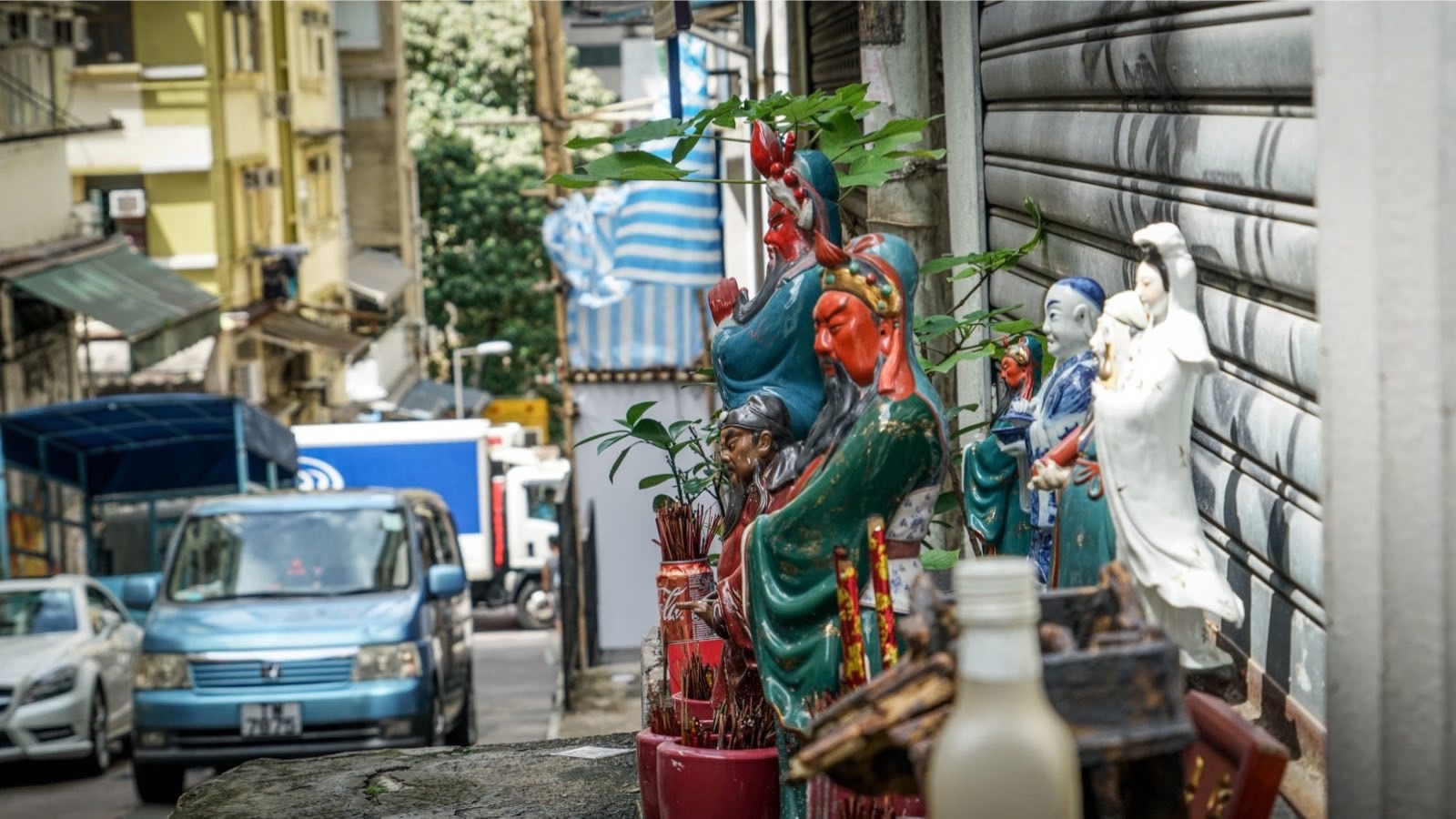
CGTN Photo
Streets provoke memories of old and new, classic Jaguars and Minis are parked alongside Mercedes and Teslas as the enduring red and white taxis splutter by. Delicately poached eggs are laid on globs of smashed avocado, as soup is ladled over noodles a few steps away.
Traditional apartments are the norm in this neighborhood, but the city’s trademark towering buildings are never far away. Legacies of the past are preserved alongside the infrastructure development that has propelled Hong Kong forward over the past 20 years.
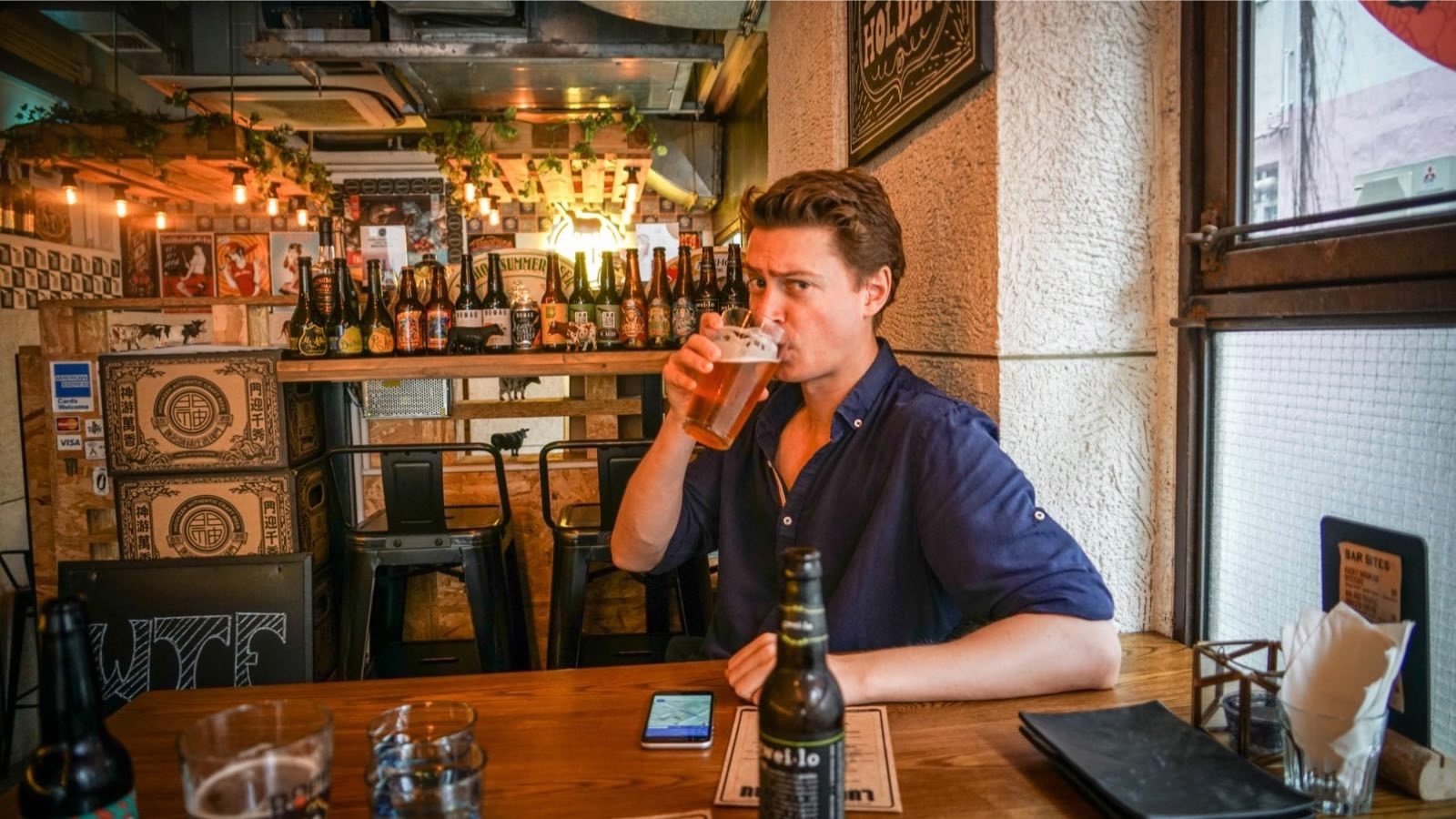
CGTN Photo
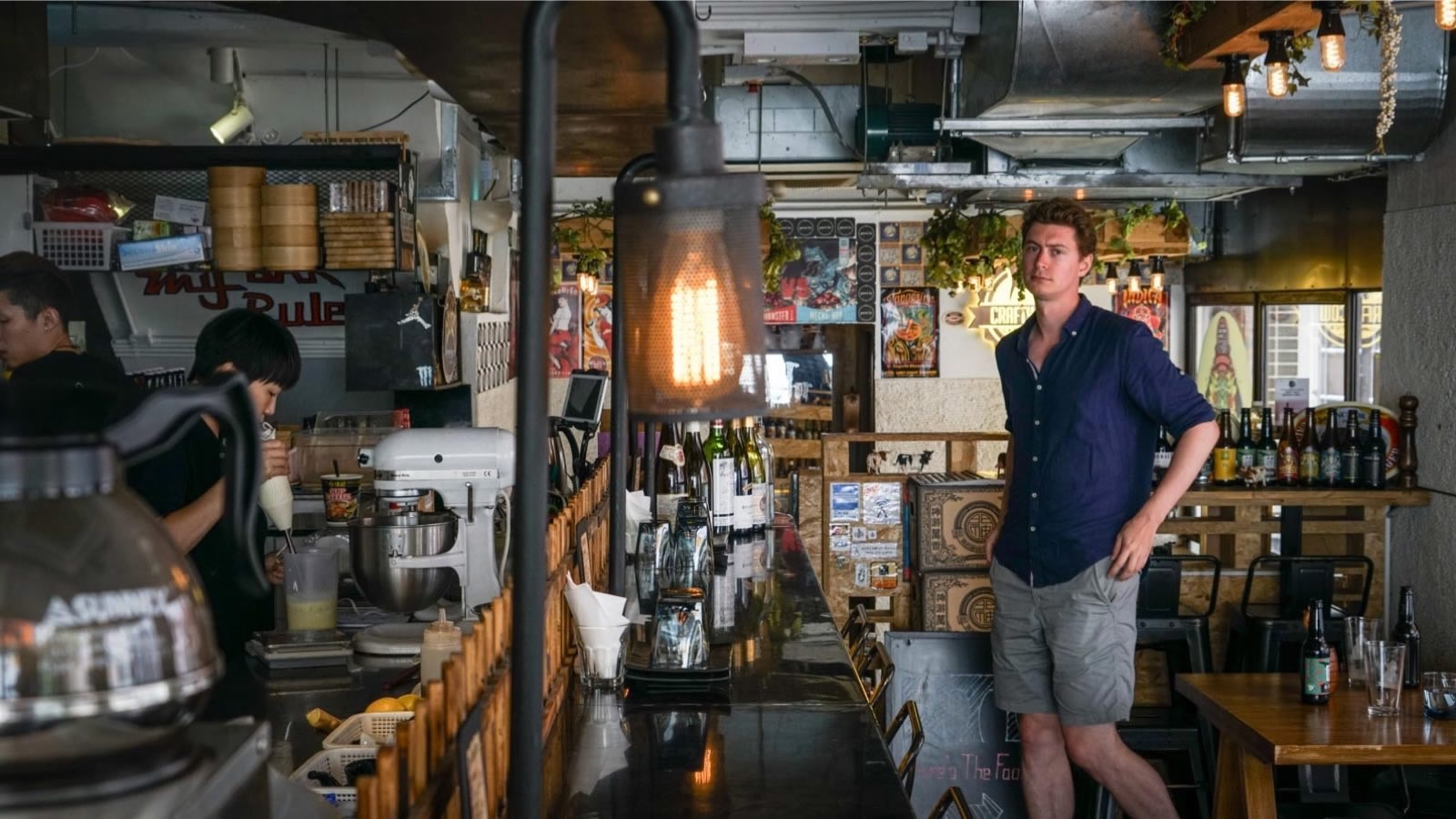
CGTN Photo
The smells of the city float through the streets, the sweet aroma of beef noodles draws us beyond a South African exhorting his modish European brunchery and through a steamy doorway. Old ladies natter in Cantonese as meat is chopped and noodles prepared – Western influences are left far behind.
The rain falls as we wind upwards, passing mechanics tweaking gleaming marques manufactured on the Chinese mainland and overhauling faded European classics, venturing beyond the glorious facade of a former mental hospital to find a vast community center where parents and kids, Asian and Western, gather. Sheltering in scuffed doorways and under the awnings of the high rises, we observe the contrasts which make this city.
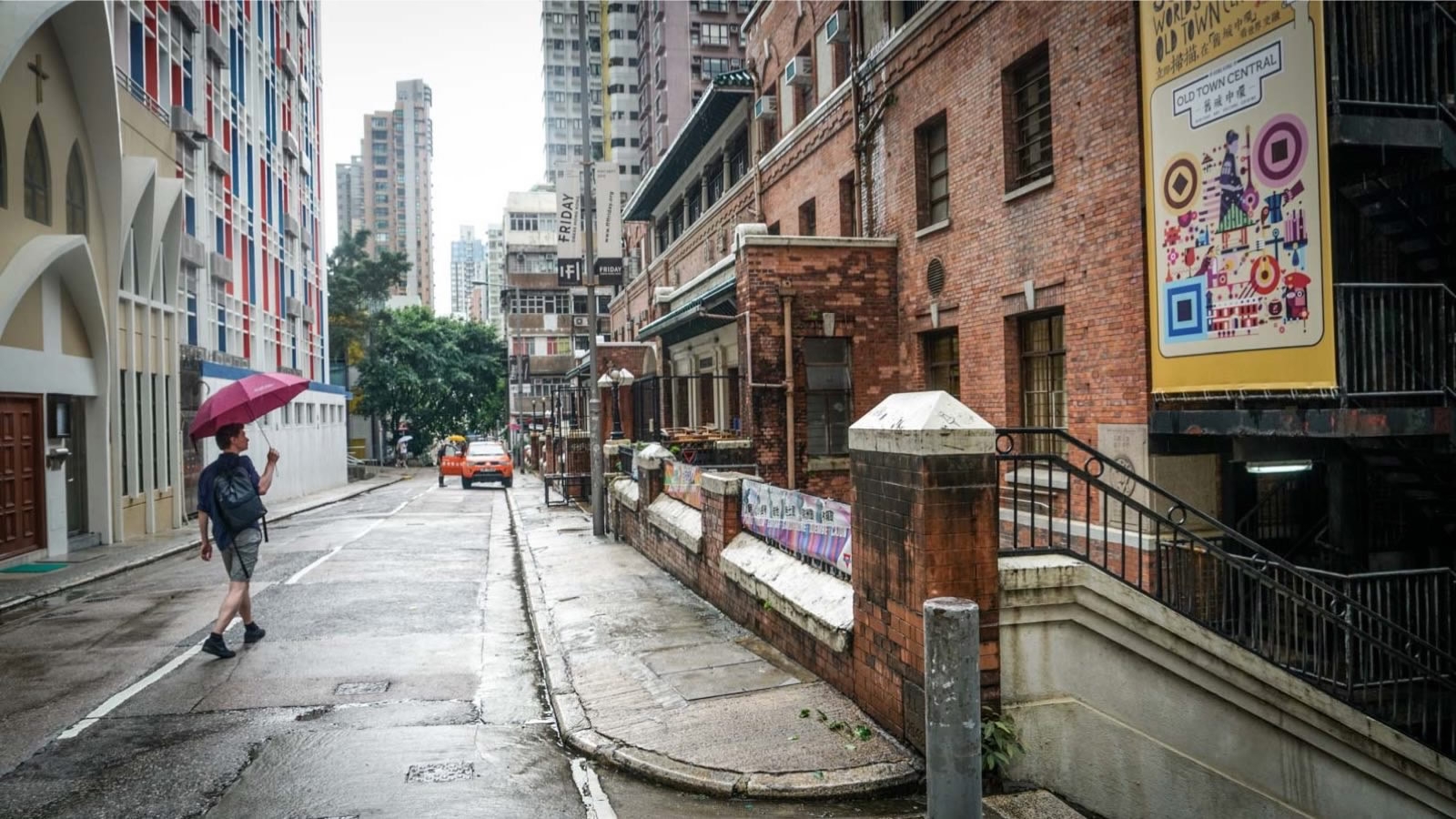
CGTN Photo
A gastropub serving burgers with Chinese flavors and micro-brewed Hong Kong ale offers a respite from the showers. Is this a fusion of cultures or a big tent? A necessity borne of intense population density, or simply an adaptation to a historical legacy?
A church overlooking parkland with a skyscraper looming overhead. Dropping down a street of stone steps to a handsome redbrick YMCA carrying a QR code introducing the art district, where a modernist gallery celebrates the year of the rooster.
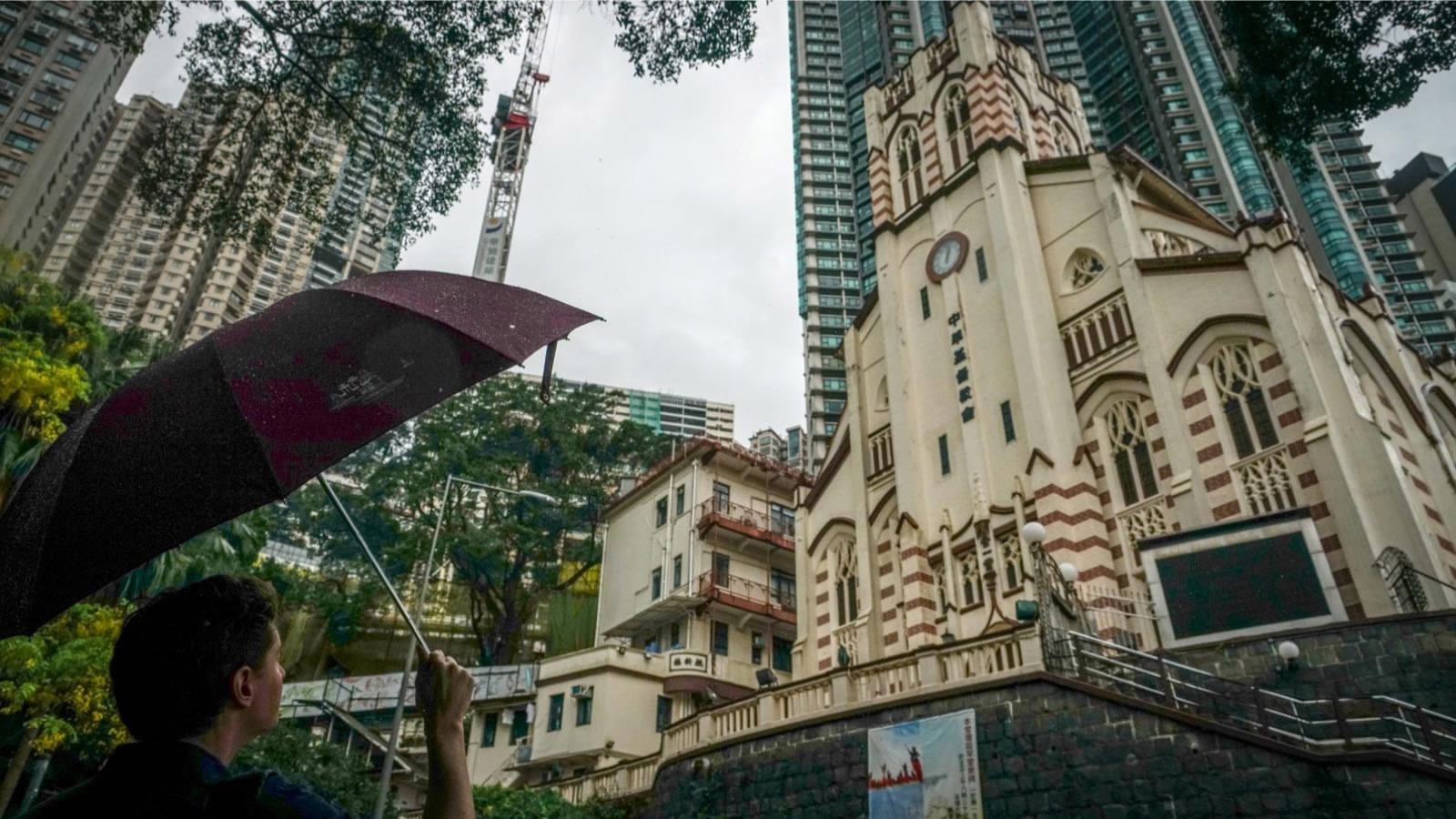
CGTN Photo
Descending Ladder Street to the Man Mo Temple, incense swirls down from coils and worshipers pay respects, as a Chinese model poses for photographs with smoke trailing around her. Perspiring tourists raise their phones as sunlight streams through a building that retains great symbolism for the elder community.
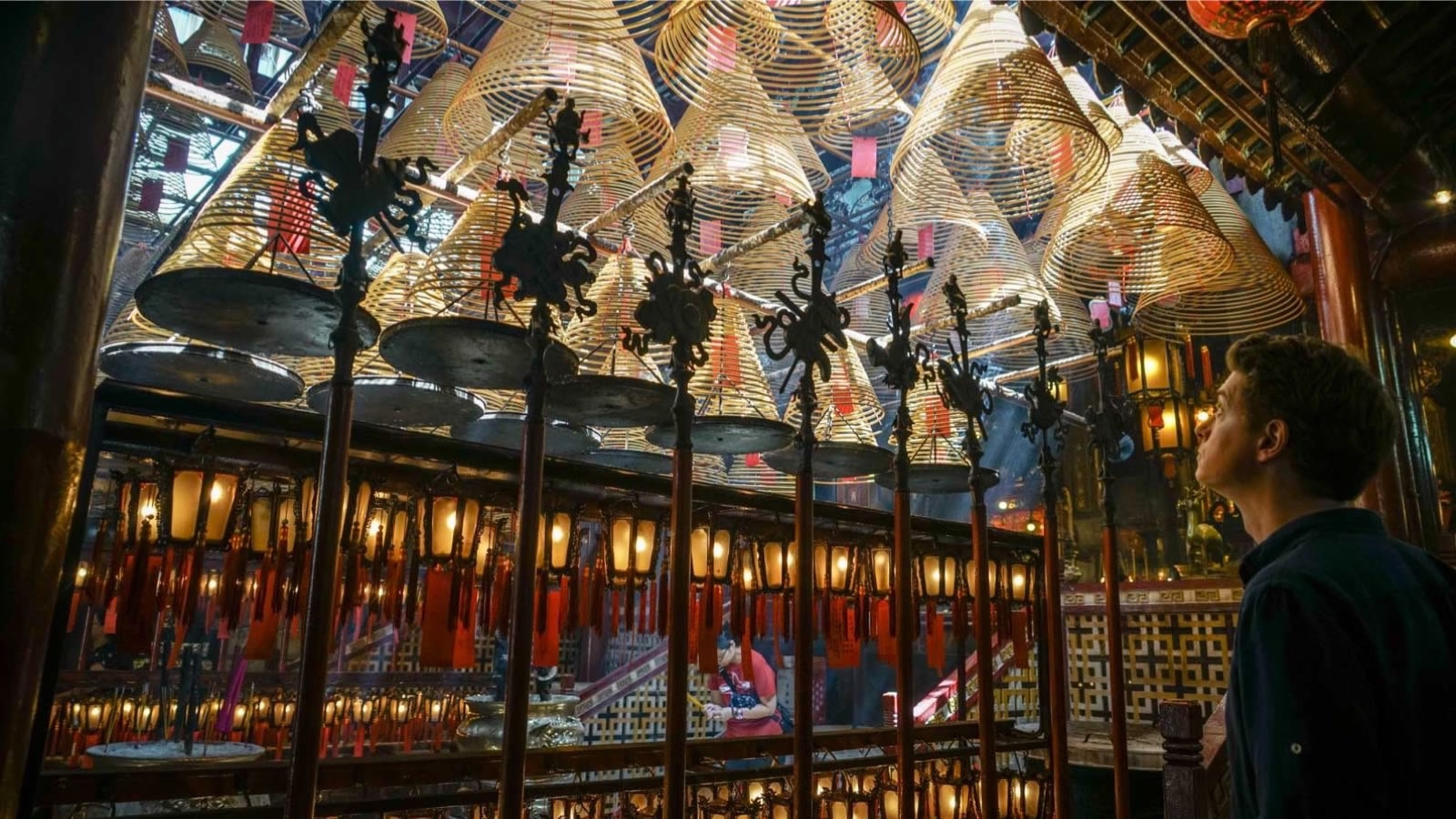
CGTN Photo
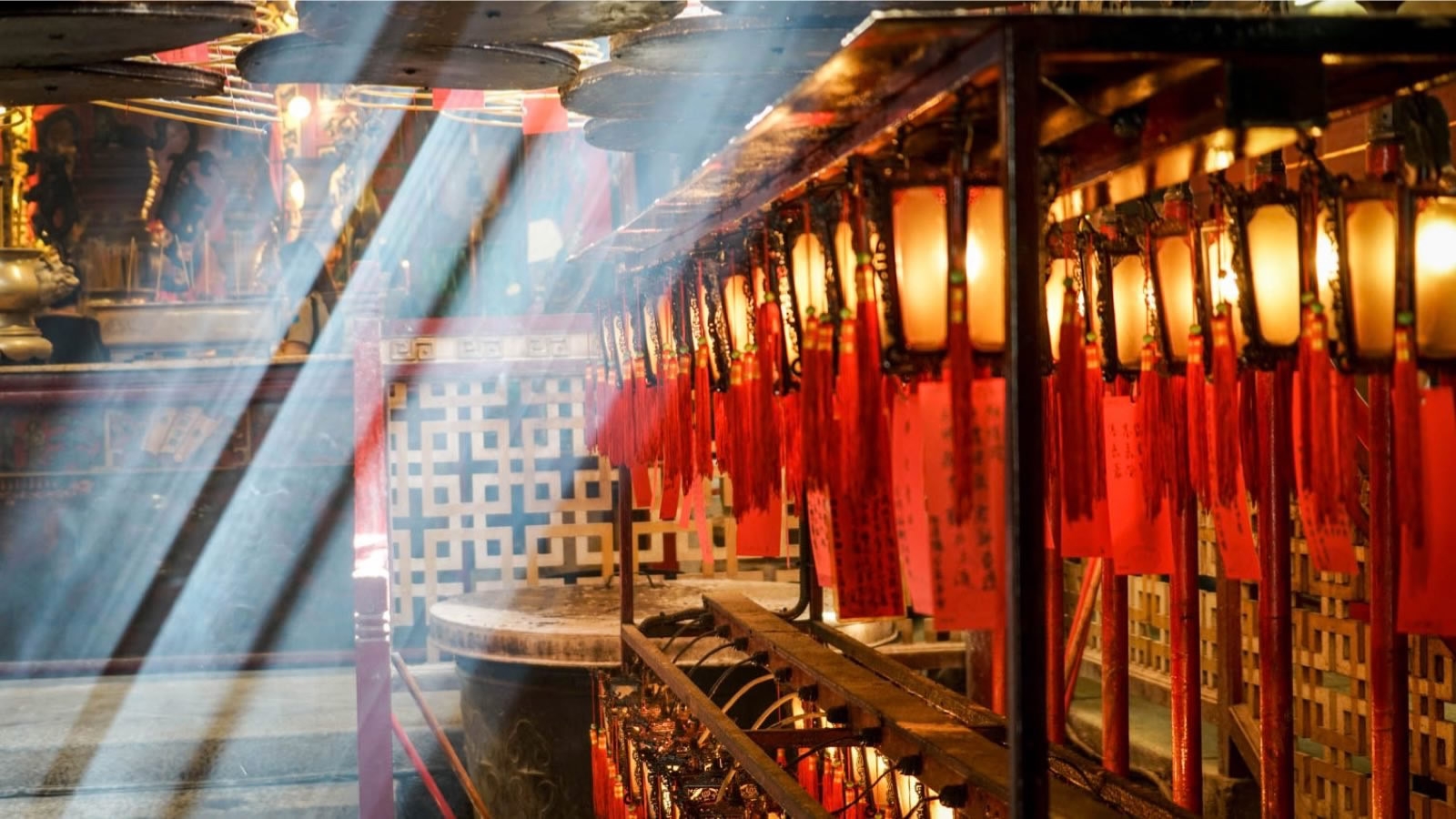
CGTN Photo
All cities have a history, the old often sits next to the new. What makes Hong Kong different?
The sincerity of the worshipers, the glamor of the cucumber-cool model, and the tourists, wet with sweat and rain as attendants look on with a resigned bemusement. Different cultures, backgrounds and agendas. This is Hong Kong, congestion, bustle, a mix of people, styles, smells and traditions progressing despite jarring contradictions.
A repair store filled with “brick” phones and watches that need more than a wind-up, above the Star Ferry pier from which families, tourists and commuters bounce across Victoria Harbour to Kowloon and its gleaming designer shops.
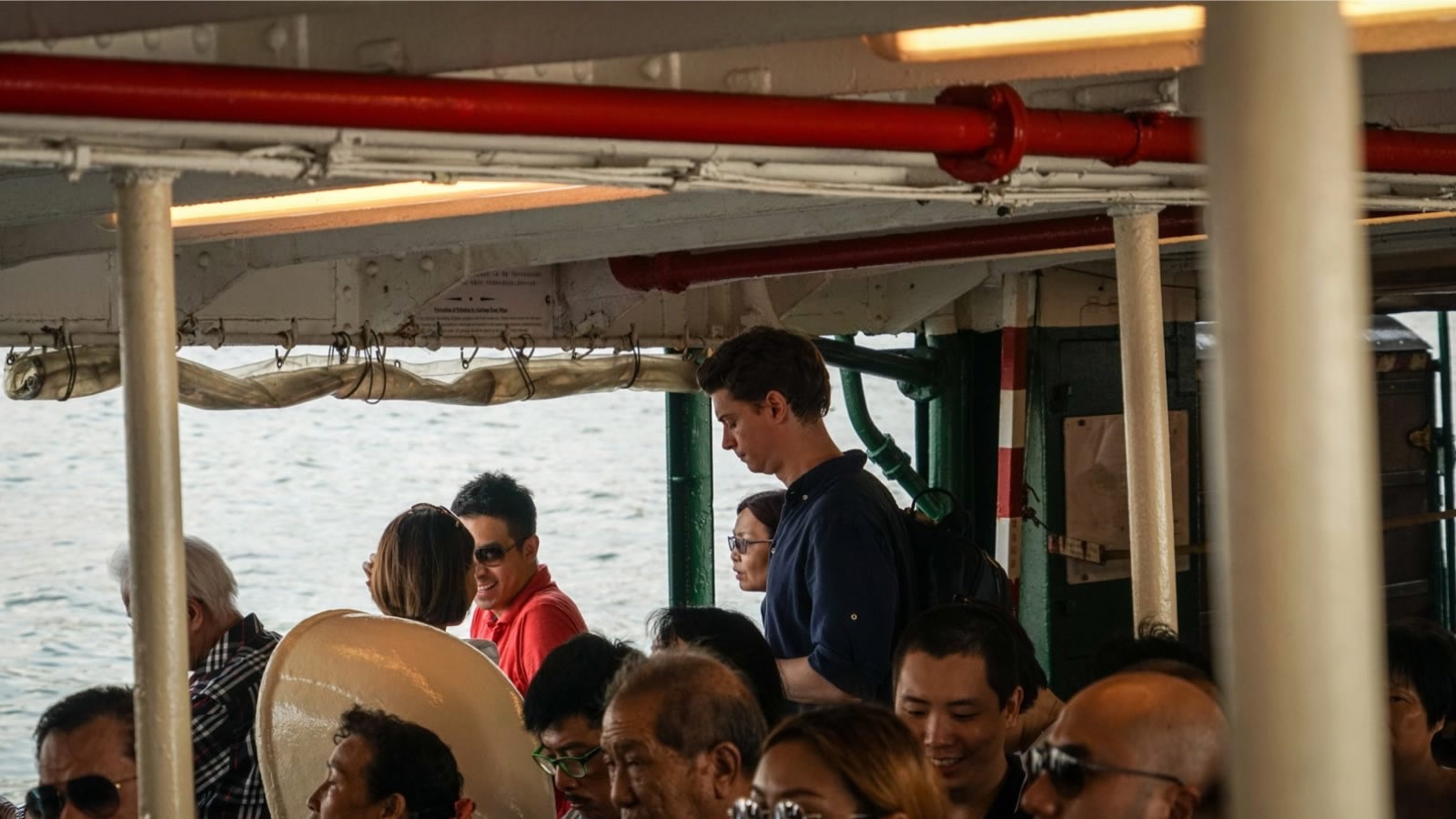
CGTN Photo
Heat and cool rain. Asian and Western. Innovation and tradition. Locals, mainlanders, workers and visitors from around the world. Hong Kong is a city of contrasts, advancing with the help of its differences.
Related stories:










